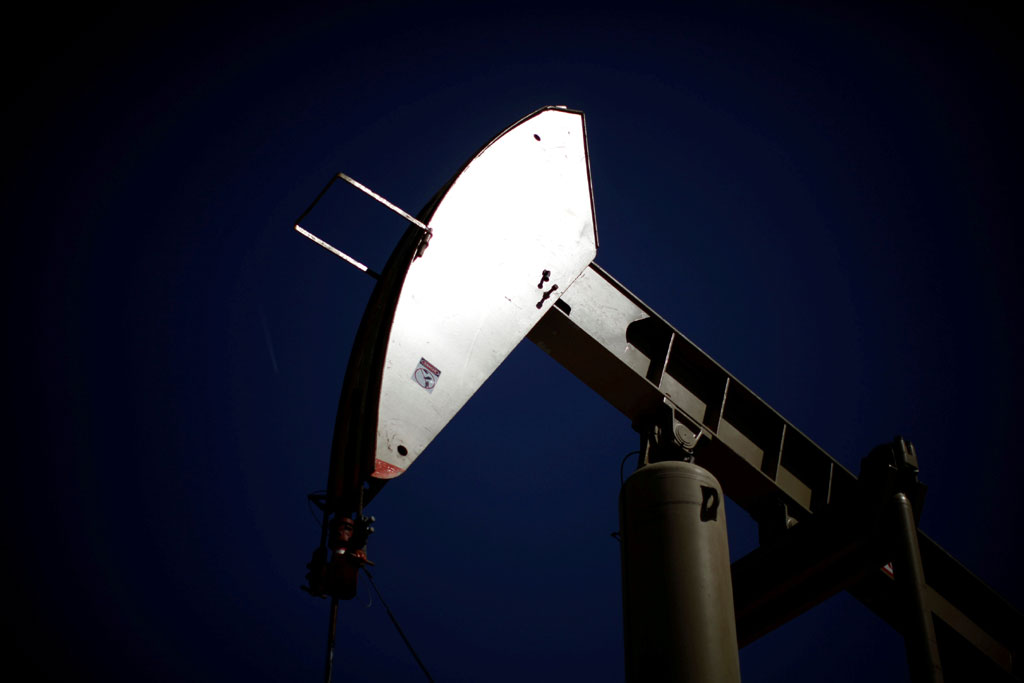 NEW YORK: Oil prices were little changed on Monday as supply disruptions in Iraq dented exports out of OPEC's second largest producer and amid signs of a decline in US drilling rates.
NEW YORK: Oil prices were little changed on Monday as supply disruptions in Iraq dented exports out of OPEC's second largest producer and amid signs of a decline in US drilling rates.
Oil exports from southern Iraq have fallen by 110,000 barrels per day this month, according to shipping data and an industry source, adding to the drop in flows caused by a shortfall from the northern Kirkuk fields.
Brent crude was trading at $57.39 a barrel by 12:28 p.m. EDT (1628 GMT), down 36 cents. US West Texas Intermediate (WTI) crude was down 1 cent at $51.83 a barrel.
"It seems like there's an awful lot of competing drivers ...
and crude seems confused," said Stewart Glickman, head of energy research at CFRA Research in New York.
"Volatility has actually been tame and there's no sustained trend lately that can break us out of this $45-$55 a barrel range."
The number of US rigs drilling for new oil fell by seven to 736 in the week to Oct. 20, the lowest level since June, energy services firm Baker Hughes said on Friday.
But analysts said the reduction in drilling rigs in the United States could prove temporary as activity had been restrained by hurricane threats and as efficiencies improve.
"We think the fall in shale oil activity is an indication of rising costs, higher break-evens outside of geological sweet-spots, falling initial well productivity and cash-flow constraints at unsustainably low prices," Standard Chartered said in a note.
"However, the turn down in drilling has yet to temper the optimism of most forecasts of US output growth in 2018."
Prices have been supported over the past few sessions by supply disruptions in northern Iraq, where tensions have been running high since the Kurdistan region's vote in favour of independence last month.
Crude oil exports through the Iraqi Kurdistan controlled-pipeline to the Turkish port of Ceyhan had risen to 288,000 bpd on Monday afternoon, from 255,000 bpd earlier in the day, a shipping source told Reuters.
Typically, the pipeline transports about 600,000 bpd.
Security sources told Reuters that Iraqi forces were deploying tanks and artillery near a Kurdish-held area of northern Iraq where a section of the Kurdish oil export pipeline is located.
Iraqi Oil Minister Jabar al-Luaibi said on Saturday oil exports were increasing from the southern Basra region by 200,000 bpd to make up for a shortfall from the northern Kirkuk fields.
In a landmark visit to Iraq, Saudi Arabian Energy Minister Khalid al-Falih praised the two countries' collaboration within the Organization of the Petroleum Exporting Countries to cut production in an effort to prop up prices.
Iraq said the two countries would continue to cooperate in implementing decisions by oil exporting countries.
The remarks come just over a month ahead of the group's next scheduled meeting, at which the oil exporters are expected to announce further decisions on their production-curbing deal.
Potential further steps by OPEC, rising global oil demand and the reduction in US drilling and its crude oil stocks are some of the factors that could lead oil prices higher in the short term, said Frank Schallenberger, head of commodity Research at Landesbank Baden-Wuerttemberg.
"I wouldn't be surprised to see WTI going up to $55 a barrel and Brent to $60 a barrel before the beginning of November," he said.




















Comments
Comments are closed.